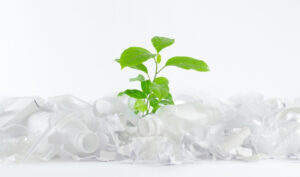Trash disposal

Within the sphere of the Japanese real estate industry and society as a whole, of the stereotypes directed at foreigners (regardless of nationality) living in Japan, themost undeserved one is:
“They can’t sort their garbage”
At one point I used to use this as a euphemism for “gaijin” in polite conversation in the same way “women in comfortable shoes” or “fans of Judy Garland” were used in the 1950’s.
Japan has fairly complicated rules about garbage and how and when it is disposed of.
Most municipalities have their own sets of rules and schedules for what type of garbage goes out when and where. Most places will have online information in English![]() , Chinese
, Chinese![]() , Korean
, Korean![]() , Portuguese
, Portuguese![]() , Spanish
, Spanish![]() (sometimes) and Vietnamese
(sometimes) and Vietnamese ![]() available, via the local city or ward office website.
available, via the local city or ward office website.
Once you have determined where your garbage is supposed to go, and which type is to be put out on which specific day, you will need to figure out what is what. In some cases, in more central locations, or if you live in mixed-use commercial + residential building, your garbage may be picked up by a private company, and they will pick up your garbage every day and do all the sorting for you. Even so, your should still do your best to be a “tidy gaijin”.
Here are the main garbage types![]() :
:
① Regular household garbage – this includes food waste, paper packaging, tissues, sanitary items, diapers etc. Usually referred to as burnable garbage. Usually collected 2 times a week.
.
②Recyclables – or non-burnable garbage. Usually refers to metal and glass items. This one is pretty easy as cans for food and beverages are included as well as glass containers with metal lids.
.
③ Plastics – or プラ (pura) garbage is pretty much any plastic packaging with the プラ mark on it, which covers almost all food and disposable items, plastic bags, labels, bottle caps, and anything else plastic in your house that isn’t…
.
④ PET plastics – also known as the mouthful = Polyethylene terephthalate
– Usually the plastic water bottles you buy from the convenience store or vending machine are PET bottles and clearly marked as such.
⑤ Others:
Most areas will also recycle cardboard and newspapers once or twice a month and other larger garbage items such as unwanted furniture etc., may be disposed of, but these will usually require an online or phone-in application.
As a very general rule of thumb, look at what kind of garbage your neighbours are putting out on which day, and follow suit.
Don’t perpetuate the stereotype of not separating your garbage. You are better than that, I believe in you!!

 Inquire by Messenger
Inquire by Messenger Inquire by LINE
Inquire by LINE